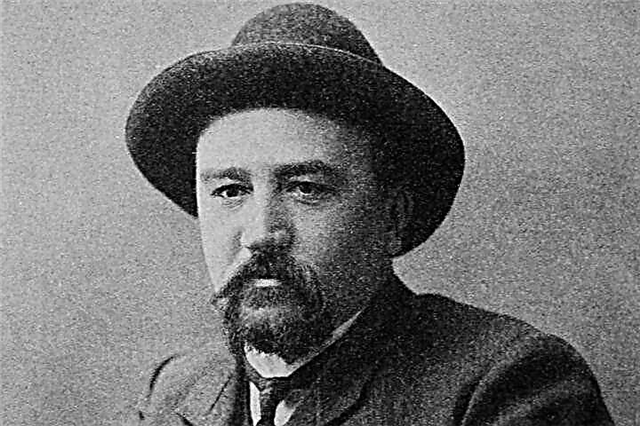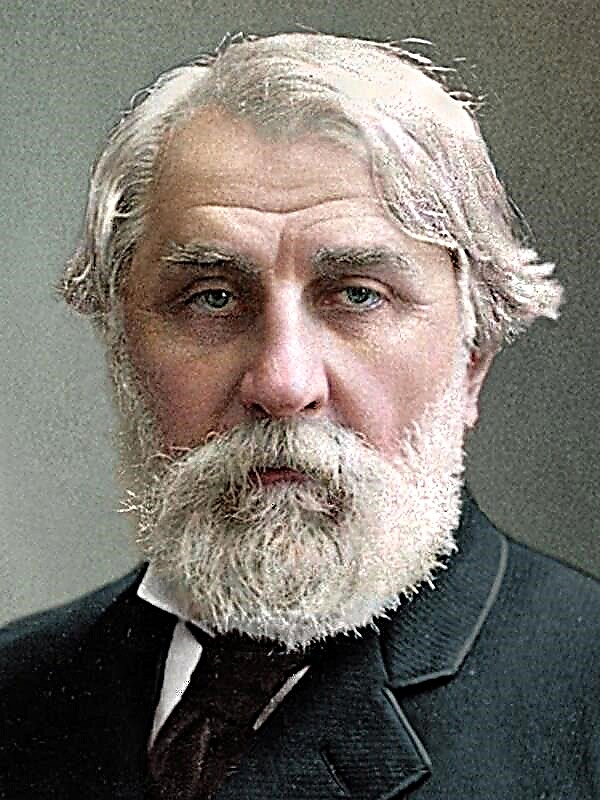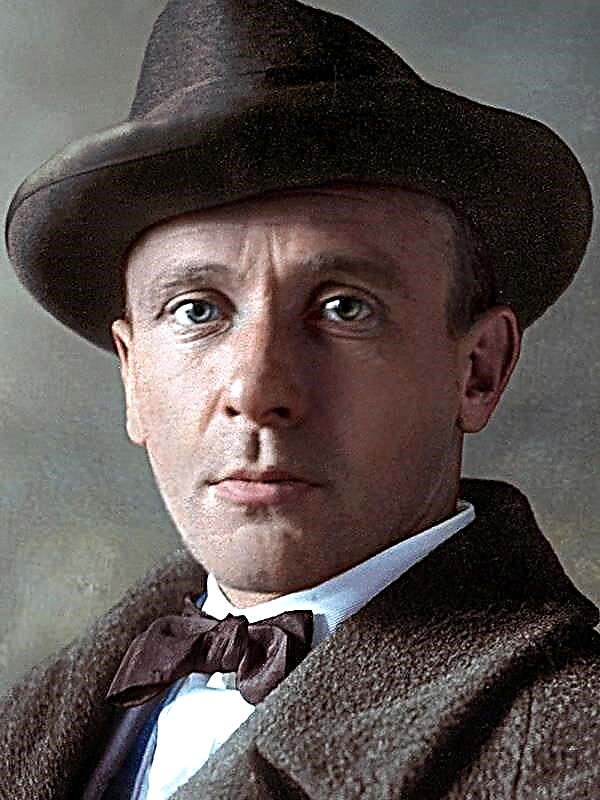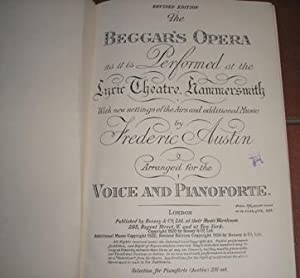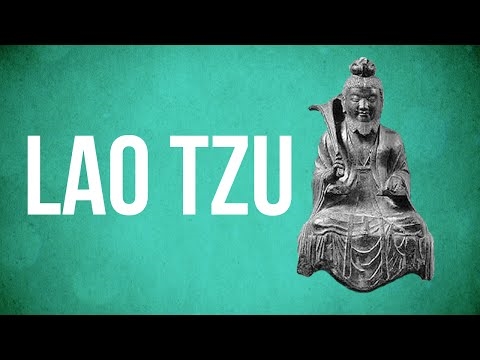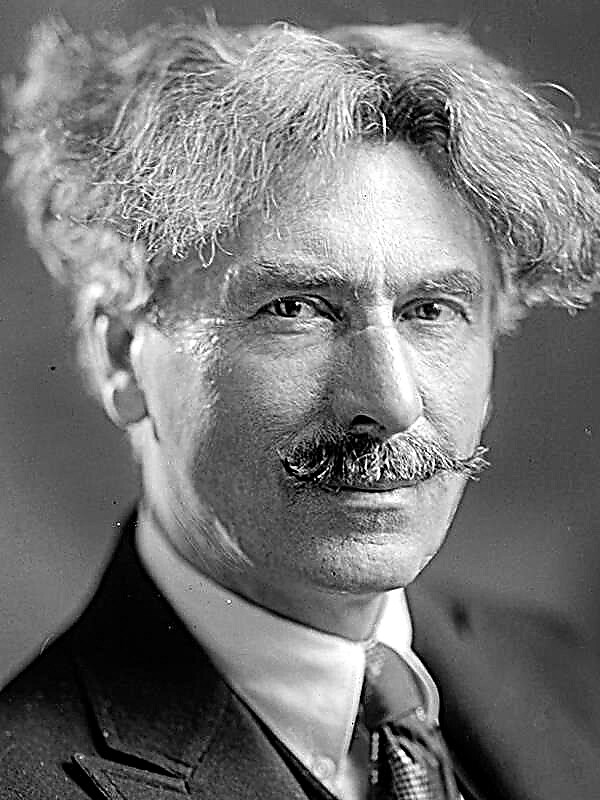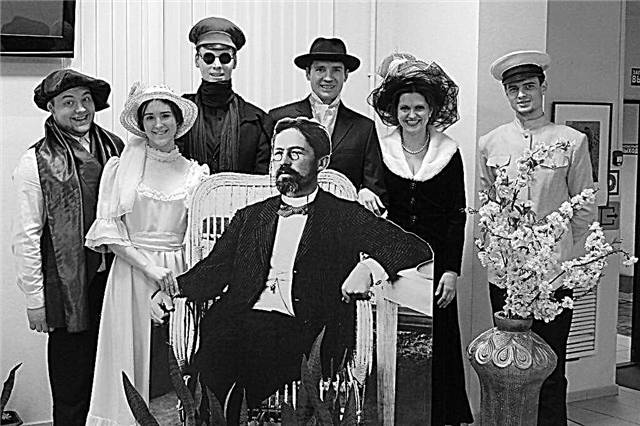: Memories of women who went through the war: gunners, snipers, sappers, pilots, laundresses, bakers, nurses, partisans.
The main narrative is on behalf of Svetlana Aleksievich, the stories of the heroines are on their behalf.
Women participated in wars starting from the 4th century BC. In the First World War, hundreds of thousands of women already served in the armies of Europe. But during the Second World War, a “female phenomenon” occurred - millions of women left to fight. They served in all, even the most "male" branches of the army.
How was the book conceived
The original title of the chapter is “Man is more than war (from the diary of the book)”
Svetlana Aleksievich grew up on stories and memories of the war. All the books she read were “written by men about men” as well, so she decided to collect military memoirs of women, without heroes and exploits, about people “who are engaged in inhuman human affairs”, about the little things in life.
Memories are not a passionate or impassioned retelling of a vanished reality, but a new birth of the past, when time reverses.
Aleksievich collected material for seven years. Many did not want to remember, they were afraid to tell too much, but the author became more and more convinced - "after all, he was a Soviet man." Yes, “they had Stalin and the Gulag, but there was also the Victory,” which they won, they deserved.
After the release of the first version of the book, already during Perestroika, people finally spoke up. Aleksievich began to receive thousands of letters, and the book had to be finished. The corrected version included much of what Soviet censorship crossed out.
Start
The original title of the chapter is “I do not want to remember ...”.
The search for Aleksievich began with a three-story building on the outskirts of Minsk, where the recently retired accountant Maria Morozova lived. This small woman with a peaceful profession was a sniper, has eleven awards, and she has 75 killed Germans.
“I don’t want to remember ...”, Maria refused, but then she got into a conversation and even introduced the author to a front-line girlfriend, sniper Claudia Krokhina.
Why did the girls go to war
The original title of the chapter is “Grow up, girls ... you are still green ...”.
Dozens of stories revealed to the author the truth about the war, which “didn’t fit into the short and familiar formula from childhood - we won”, because it didn’t collect stories about heroic deeds and battles, but the stories of little people thrown “from just life into the epic depths of a huge event ".
The author wanted to understand where these 1941 girls came from, which made them go to war and kill on a par with men. Sixteen, eighteen-year-old girls were eager for the front, willingly went to the courses of nurses, signalers. They were told: “Grow up, girls, you are still green”, but they insisted and went to the front as traffic controllers. Many ran away from home without saying anything to their parents. They forgot about love, cut their braids, put on men's clothing, realizing that “Homeland is everything, Motherland must be protected”, and if not them, then who ...
The first days of the war, the endless retreat, burning cities ... When they saw the first invaders, a feeling of hatred arose - "how they can walk on our land!" And they went to the front or to the partisans without hesitation, with joy.
The old man is afraid of death, and the young laughs. He is immortal!
They walked not for Stalin's sake, but for the sake of their future children, they did not want to submit to the enemy and live on their knees. They walked lightly, believing that the war would end by autumn, and thinking about clothes and spirits.
In the early days of military life, girls were taught to fight. Discipline, charter, early ups and exhausting marches were not immediately given.The burden on the female body was very high - for pilots, they “pressed their stomach directly into the spine” from height and overloads, and in the kitchen they had to wash the boilers with ash and wash soldiers' clothes - lousy, heavy from blood.
Girls wore cotton pants, and they were given skirts only at the end of the war. Nurses pulled the wounded from the battlefield, twice as heavy as themselves. Maria Smirnova during the war pulled out from under the fire of 481 wounded, "a whole rifle battalion."
Sanitary instructor of the tank brigade
The original title of the chapter is “I returned to my mother alone ...”.
Soon Aleksievich ceases to record everyone, chooses women of different military professions. Nina Vishnevskaya as a medical officer of the tank brigade participated in one of the battles of the Kursk Bulge. A female medical officer in the tank forces is a rarity, usually men served there.
Each of us sees life through his own business, through his place in life or in the event in which he participates.
On the way to Moscow, where Vishnevskaya lived, the author talked to her compartment neighbors. Two of them fought, one with a sapper, and the other with partisan. Both believed that a woman had no place in the war. They could still receive a female nurse who saved lives, but not a woman with a rifle.
The soldiers saw in the front-line girls friends, sisters, but not women. After the war, "they were terribly unprotected." The women who stayed in the rear saw them as a turtle-tail that went to the front to pick up the suitors, while the girls walking, most often, were honest, clean. Many of them never got married.
Nina Vishnevskaya told how she, small and fragile, did not want to be taken into tank troops, which required large and strong girls who could pull a man out of a burning tank. Nina made her way to the front with a hare, hiding in the back of a truck.
Sanitary instructors did not have a place in the tank, the girls clung to the armor, risking falling under the tracks, in time to notice the burning tank. Of all her friends, Nina "alone returned to her mother."
Having rewritten the story from the tape, Aleksievich sent it to Vishnevskaya, but she crossed out all the funny stories, touching trifles. She did not want her son to learn about this side of the war, sought to remain a heroine for him.
Subsequently, the author “more than once came across these two truths living in one person” - her own and the general. Sometimes Aleksievich hardly managed to talk to a woman and hear a story about her personal war.
Spouse veterans
The original title of the chapter is “Two wars live in our house ...”.
Olga Podvyshenskaya and her husband Saul love to repeat: "Two wars live in our house ...". Olga, the foreman of the first article, fought in the marine unit in the Baltic, her husband was an infantry sergeant.
Olga was not taken to the front for a long time - she worked at the rear factory, where people were worth its weight in gold. She received the agenda only in June 1942 and fell into the besieged Leningrad, in the smoke mask detachment - warships obscured the smoke, which the Germans regularly bombarded. The girls fed starving children with their rations.
Olga became the commander of the department, spent all days on a boat, where there was no toilet, with a crew of some guys. It was very difficult for a woman. She still cannot forget how, after a big battle, the canopies of the dead sailors sailed through the Sea Canal.
Olga did not wear medals, was afraid of ridicule. Many war veterans hid their participation in battles, injuries, out of fear that they would not be married. Only dozens of years after the war were they noticed.
Revenge for the deceased father
The original title of the chapter is “The handset does not shoot ...”.
The front-line soldiers have different contact with Aleksievich. Some begin to tell right away, right on the phone, others put off for a long time. The author waited several months to meet with Valentina Chudaeva.
The war began after Valentine's graduation. The girl became a signalman in the anti-aircraft part.Upon learning of her father’s death, Valentina wanted to take revenge, but “the telephone doesn’t shoot”, and the girl broke through to the front line, graduated from the three-month course, and became the gun commander.
Then Valentina was hit by a shrapnel in the back and thrown into a snowdrift, where she lay for several hours and froze her legs. In the hospital, they wanted to amputate the legs, but the young doctor tried a new method of treatment - injected oxygen under the frostbite skin - and the legs were saved.
Valentina refused the vacation laid after the hospital, returned to her unit and met Victory Day in East Prussia. She returned home to her stepmother, who was waiting for her, although she thought that her stepdaughter would return crippled.
A house is something that means more people who live in it, and more than the house itself.
Valentina hid that she had fought and was shell-shocked. She married her front-line woman, moved to Minsk, gave birth to a daughter. “In addition to love, there was nothing in the house,” even the furniture was picked up at landfills, but Valentina was happy.
Now, forty years after the war, front-line women began to be honored. Valentina is invited to meet with foreigners ... And all she has left is Victory.
Weekdays of a military hospital
The original title of the chapter is “We were awarded small medals ...”.
Mailbox Aleksievich is clogged with letters. Everyone wants to tell because they were silent for too long. Many write about post-war repressions when war heroes directly from the front fell into the Stalinist camps.
It is impossible to cover everything, and suddenly unexpected help - an invitation from veterans of the 65th Army of General Batov, who gather once a year at the Moscow Hotel. Aleksievich records the memories of employees of a military hospital.
"Green" girls who graduated from three courses of medical school, saved people. Many of them were “mother's daughters” and first left the house. Tired so that we slept on the go. Doctors operated on for days, fell asleep at the operating table. The girls did not understand the awards, they said: "We were awarded small medals ...".
In the first months of the war there wasn’t enough weapons, people died before they could shoot at the enemy. The wounded did not cry from pain - from impotence. The Germans led Frontovich to the ranks of the soldiers, "showed: they say, they’re not women, but freaks," then they shot him. Nurses always kept two cartridges for themselves - the second in case of misfire.
Sometimes the hospital was urgently evacuated, and the wounded had to be left. They asked not to give them alive to the hands of the Nazis, who mocked the Russian wounded. And during the offensive, the wounded Germans got to the hospital, and they had to be treated, bandaged ...
Avenged the "blood brother"
The original title of the chapter is “It was not me ...”
People remember the war years with surprise - the past flashed, and the man remained in ordinary life, as if divided in two: "It was not me ...". While telling, they meet with themselves again, and Alexievich seems to hear two voices at the same time.
Olga Omelchenko, the medical officer of the rifle company, at the age of sixteen became a blood donor. On one of the bottles with her blood, the doctor glued a piece of paper with an address, and soon a blood brother came to the girl.
A month later, Olga received a funeral for him, wanted to take revenge and insisted on sending to the front. The girl survived the Kursk Bulge. In one of the battles, two soldiers scared, ran, and behind them - the whole chain. Cowards were shot before the formation. Olga was one of those who carried out the sentence.
After the war, she became seriously ill. The old professor explained the illness by mental trauma received at the war at a too young age, advised to get married and give birth to children, but Olga felt old.
A man in a war ages a soul.
She still got married. She gave birth to five boys, turned out to be a good mom and grandmother.
Daughters of a hero
The original title of the chapter is “I still remember these eyes ...”.
The search brought Alexievich with two daughters of the Hero of the Soviet Union Vasily Korzh, who became a Belarusian legend. Olga and Zinaida Korzh were medical instructors in the cavalry squadron.
Zina lagged behind the family during the evacuation, cleaved to the female doctor and stayed in her medical unit. After a four-month course of nurses, Zina returned to the medical unit. Near Rostov, during the bombing she was wounded, got to the hospital. At the end of 1941 she received a vacation and found her mother with her sister and younger brother on a collective farm near Stalingrad.
The sisters decided to join some military unit, but in Stalingrad no one wanted to listen to them. They went to the Kuban to the acquaintances of their father and fell into the cavalry Cossack corps.
Zinaida recalls her first battle when the corps was attacking German tanks. The Nazis could not stand the sight of this avalanche, threw weapons, fled. After this battle, the sisters realized that they should not fight together - "the heart will not survive if one dies in front of the other."
At eighteen, Zina was commissored for health reasons - “three injuries, severe concussion”. After the war, the father helped his daughters get used to a peaceful life. The sisters did not become doctors - there was too much blood in their life.
Peaceful military professions
The original title of the chapter is “We didn’t shoot ...”.
In the war, they not only shot, but also prepared, washed clothes, sewed shoes, repaired cars, looked after horses. The war half consisted of ordinary life, which was driven by ordinary people. “We didn’t shoot ...” they recall.
Cooks all day tossing up heavy boilers. The laundresses washed their hands in blood, washing clothes that had become stiff from the blood. Nurses took care of the seriously wounded - washed, fed, brought the ship.
The girls were supply and postmen, builders and correspondents. Many reached Berlin. Awarding the workers of the "second front" began only at the end of the war.
Valentina Bratchikova-Borschevskaya, deputy commander of the laundry squad, knocked out awards for many girls at the end of the war. In a German village, they came across a sewing workshop, and Valentina presented each laundress who left home with a sewing machine.
Running away from the Germans, Antonina Lenkova settled on a collective farm near Stalingrad, where she learned to drive a tractor. She went to the front in November 1942, when she was eighteen, and began to assemble motors in an armored field workshop - the "factory on wheels", where they worked for twelve hours, under bombing.
They regretted beautiful girls in the war, spared more. ‹...› It was a pity to bury them ... It was a pity to write out a funeral for mom ...
After the war, it turned out that the girl’s entire autonomic nervous system was destroyed, but Antonina still graduated from the university, which became her second Stalingrad.
War and Women's Needs
The original title of the chapter is “A soldier was needed ... but I wanted to be more beautiful ...”.
Even in the war, women tried to decorate themselves, although it was forbidden - “a soldier was needed ... but I wanted to be more beautiful ...”. Making girls warriors was not easy - they are more difficult than men to get used to discipline. Commanders did not always understand women's needs.
The navigator of Alexander Popova, flying on Po-2 aircraft made of wood and fabric, only after the war did she learn that she had her whole heart in scars - terrible night flights affected. And the girls-gunsmiths who lifted heavy shells stopped their periods, after the war, many of them could not give birth.
During menstruation, the girls wiped their feet with grass and left a bloody trail behind them, and trousers with dried blood rubbed their skin. They stole excess clothing from the soldiers.
Since childhood, Taisiya Rudenko dreamed of serving in the Navy, but she was accepted to the Leningrad Artillery School only by order of Voroshilov himself. In order not to stay after school on the beach, Taisiya posed as a guy, because a woman on a ship is a bad omen. She became the first female Navy officer.
They tried to protect women in the war.To get on a combat mission, it was necessary to stand out, to prove that you can do it. But the women, in spite of everything, did it.
Minesweeper is mistaken once
The original title of the chapter is “Young ladies! And you know: the commander of a sapper platoon lives only two months ... ”
Aleksievich is trying to understand, "how can one survive among this endless experience of dying." The commander of the sapper platoon Stanislav Volkov told how the girls who graduated from the sapper school did not want to be allowed to the front lines were frightened: And you know: the commander of a sapper platoon lives only two months ... ”
Appolina Litskevich, the officer-miner, experienced reconnaissance sappers did not take for a commander for a long time. Appolina went all over Europe, and two more years after the war cleared cities, villages, fields.
Death after Victory is the worst death. Twice death.
Love, military marriages and what they don’t talk about
The original title of the chapter is “Only to look once ...”.
Women speak of love in war reluctantly, as if defending themselves "from post-war insults and slander." Those who decide to tell everything are asked to change their last name.
Some women went to the front after her beloved husband, found him on the front line, “only to look once ...”, and, with any luck, returned home together. But more often they had to see the death of a loved one.
Most of the fronts claimed that men treated them like sisters, cherished. Sanitator Sofya K-vich was not afraid to admit that she was a “field-camping wife”. She did not know the caring attitude and does not believe the stories of other front-line soldiers. She loved her last “military husband”, but his wife and children were waiting for him. At the end of the war, Sofia gave birth to a daughter from him, and he returned to his wife and forgot, as if there was nothing. But Sophia does not regret - she was happy ...
Many nurses fell in love with the wounded, married them.
Our love was not shared for today and tomorrow, but only today.
Post-war marriages often broke up, because others were biased towards front-line soldiers. The husband threw sniper Claudia S-wu, who married after the war, because their daughter was born mentally retarded - she was in the war, she killed, and therefore she’s not able to give birth to a normal child. Now her daughter lives in a madhouse, Claudia visits her every day ...
Forest war
The original title of the chapter is “About a fractional bulb ...”.
In addition to the “official” war, there was another war that was not marked on the map. There was no neutral strip, "no one could count all the soldiers there," they fired from hunting rifles and birdhouses there. "It was not the army that fought, but the people" - partisans and underground workers.
The worst thing about this war was not to die, but to be prepared to sacrifice your loved ones. Relatives of the partisans were calculated, taken to the Gestapo, tortured, used as a living screen during raids, but hatred was stronger than fear for loved ones.
The enemy came to our land with evil ... With fire and a sword ...
Partisan scouts went on assignments with their young children, carried bombs in children's things. Hatred of the enemy overpowered even maternal love ...
The Germans dealt cruelly with the partisans, "they burned the village for one killed German soldier." People helped the partisans as best they could, gave their clothes, "the last crumbly bulb."
Belarusian villages were especially hard hit. In one of them, Aleksievich writes the stories of women about the war and the post-war famine, when there was one potato on the table, in Belarusian - “bulb”.
Once the Germans drove prisoners to the village - "whoever recognizes his there, can pick up." The women ran away, dismantled them in huts - some of them, some of strangers. And a month later there was a bastard - he reported to the commandant’s office that they had taken strangers. The prisoners were taken and shot. They buried them all over the village and mourned for a year ...
Post-war children 13-14 years old had to take up adult labor - to cultivate the land, harvest, harvest the forest.But the wives did not believe the funeral, they waited, and husbands dreamed of them every night.
From fascist camps to Stalin
The original title of the chapter is "Mom, what is a dad."
Aleksievich can no longer treat war as history. She hears the stories of female soldiers, many of whom were mothers. They went to war, leaving small children at home, went to the partisans, taking them with them. The children did not recognize the mothers who had returned from the front, and this was the most painful for the front-line soldiers, because often only the memories of the children helped them survive. So few men returned that the children asked: “Mom, what is dad?”
Most of those who fought with the Nazis in the rear did not expect honor and glory, but Stalin's camps and the stigma of "the enemy of the people." Survivors of this are still afraid to speak.
Underground worker Lyudmila Kasechkina visited the Gestapo, suffered terrible torture, was sentenced to be hanged. From the death row she was transferred to the French concentration camp Kroazet, from where she escaped and went to the "poppies" - the French partisans.
Having returned to Minsk, Lyudmila found out that her husband was an “enemy of the people”, and she herself was a “French prostitute.” Everyone who was in captivity and occupation was under suspicion.
The Soviet officer does not surrender, we have no prisoners, we have traitors.
Lyudmila wrote to all instances. Six months later, her husband was released, gray-haired, with a broken rib and a broken kidney. But he considered all this a mistake: "the main thing ... we won."
Victory and memories of well-fed Germany
The original title of the chapter is “And she puts her hand where the heart is ...”
For those who survived the Victory, life was divided into two parts. People had to learn to love again, to become "a man of no war." Those who reached Germany were ready to hate and avenge in advance, but when they saw German children and women dying of hunger, they fed them soup and porridge from the soldiers' kitchens.
Along German roads there were home-made posters with the inscription “Here she is - damned Germany!”, And people who were freed from concentration camps, prisoners of war, those who were sent here to work, walked home along the roads. The Soviet army passed through the empty villages - the Germans were convinced that the Russians would spare no one, and they themselves killed themselves, their children.
Telephone operator A. Ratkina recalls the story of a Soviet officer who fell in love with a German woman. There was an unspoken rule in the army: after the capture of a German settlement, it was allowed to rob and rape for three days, then a tribunal. But that officer did not rape, but fell in love, which he honestly admitted in a special department. He was demoted, sent to the rear.
Signalman Aglaya Nesteruk was shocked to see good roads, rich peasant houses. The Russians huddled in dugouts, and here are white tablecloths and coffee in small cups. Aglaya did not understand, "why would they fight if they lived so well." And Russian soldiers burst into houses and shot this beautiful life.
But still, we were not able to do what they did to us. Make them suffer the way we suffered.
Nurses and doctors did not want to dress and treat the German wounded. They had to learn to treat them like ordinary patients. Many health workers for the rest of their lives could not see the red color, so reminiscent of blood.
The story of an ordinary medical officer
The original title of the chapter is “Suddenly I really wanted to live ...”.
Aleksievich, receives all new letters, finds addresses and cannot stop, "because every time the truth is unbearable." The last story-recollection belongs to the medical instructor Tamara Umnyagina. She recalls the retreat of her rifle division from near Minsk, when Tamara almost got into the environment with the wounded, at the last moment she managed to take them out along the way.
Then there was Stalingrad, the battlefield — the city's “street, houses, cellars” soaked in blood, and nowhere to retreat. Replenishment - young children - Natalia tried not to remember, so quickly they died.
Natalia recalls how they celebrated the Victory, this word was heard from everywhere, “and suddenly I really wanted to live.” In June 1945, Natalya married the company commander and went to his parents. She rode a heroine, but for a new relative she turned out to be a front-line whore.
Returning to the unit, Natalya learned that they were being sent to clear the fields. Every day someone died. Natalia cannot remember, Victory Day spends washing to distract herself, and does not like military toys ...
Human life is such a gift ... A great gift! Man himself is not the master of this gift.
Man has one heart, both for love and for hatred. Even near Stalingrad, Natalia thought how to save her heart, she believed that after the war a happy life would begin for everyone. And then for a long time she was afraid of the sky and the plowed earth. Only the birds quickly forgot the war ...





